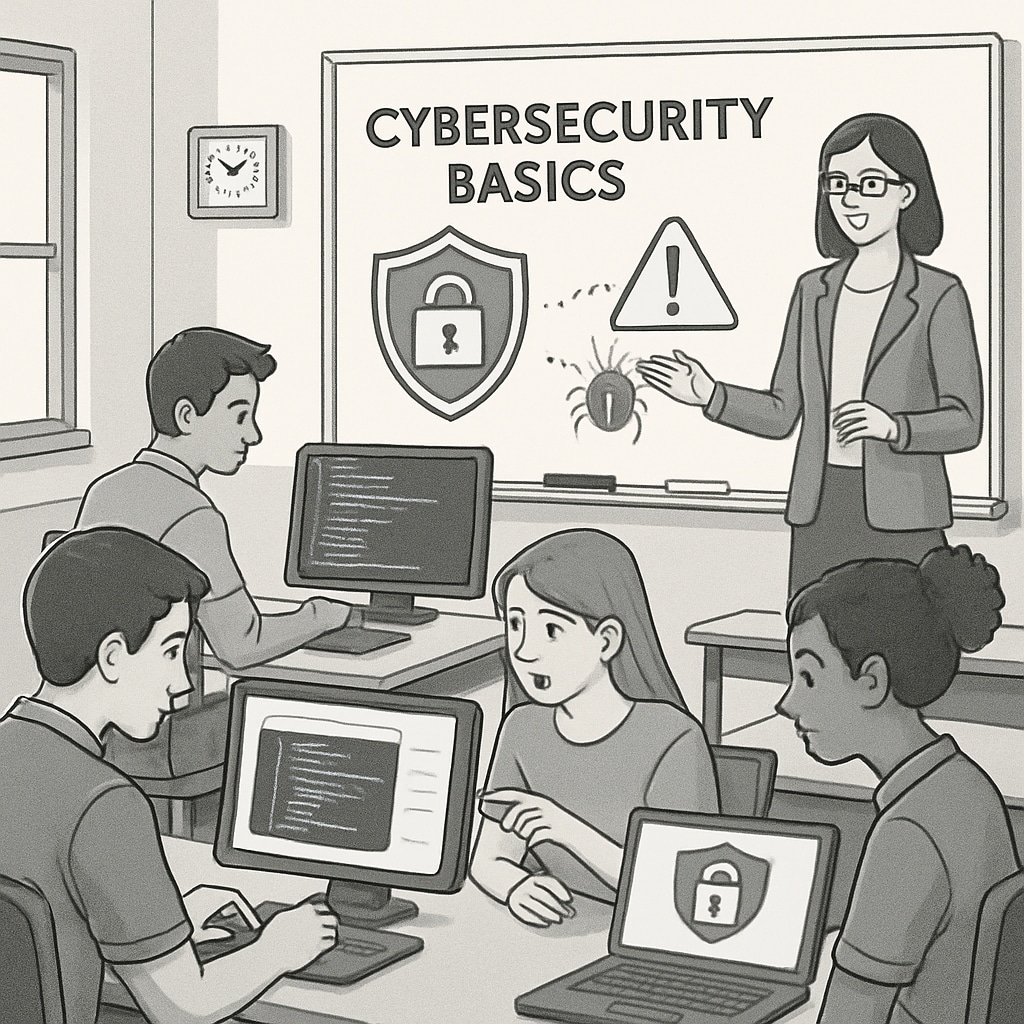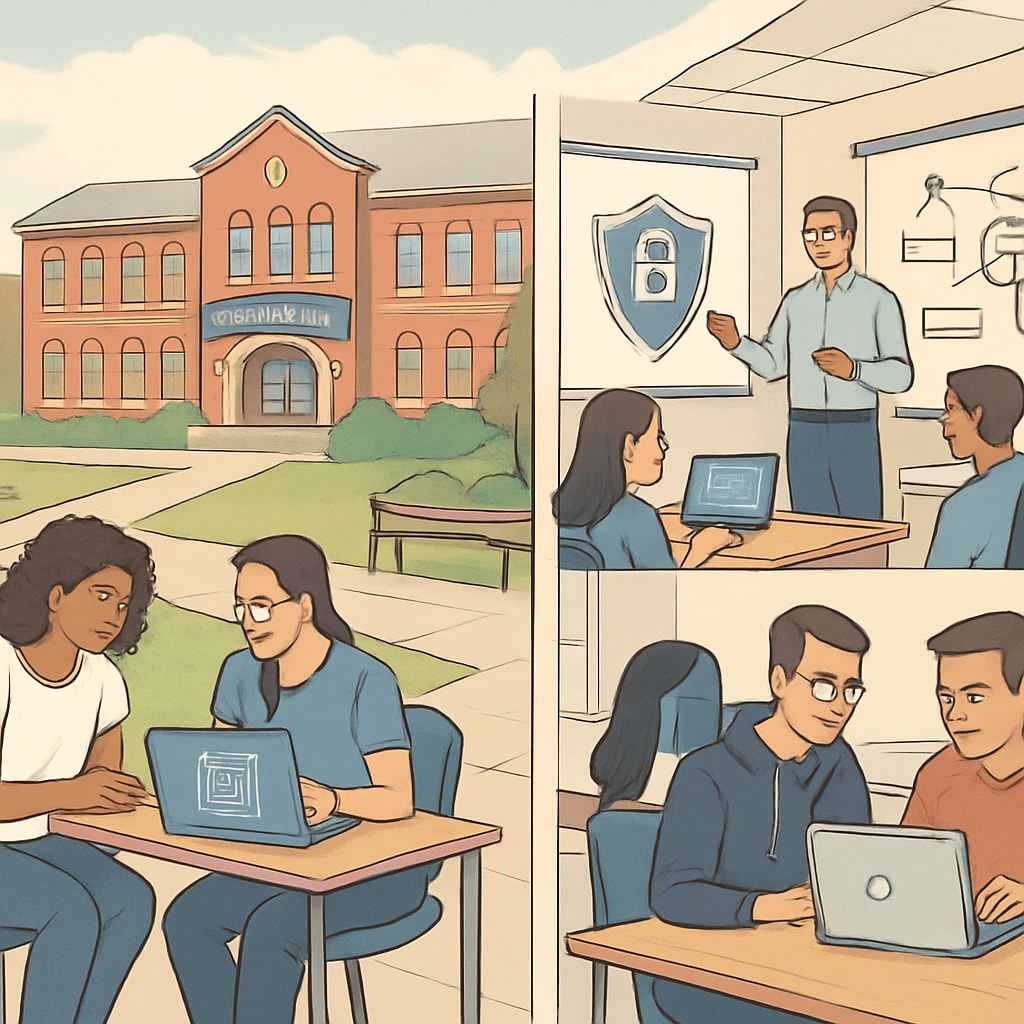In today’s digital age, the demand for cybersecurity professionals has skyrocketed, making university reputation a critical factor in shaping career prospects in the field. However, the foundation for success in cybersecurity should not wait until students graduate high school. By integrating cybersecurity awareness and skills into K12 education, we can prepare future professionals to thrive in this vital industry, ensuring they are ready to pursue higher education and secure meaningful employment.
Why Early Education Matters in Cybersecurity
Cybersecurity is not just a technical discipline—it is a mindset that requires critical thinking, problem-solving abilities, and awareness of digital threats. Starting early in K12 education helps students develop these skills, providing them with a competitive edge when applying to universities with strong reputations in cybersecurity programs. Furthermore, early exposure to cybersecurity concepts fosters digital literacy, a skill increasingly valued across industries.
For example, introducing basic cybersecurity principles such as password protection, data privacy, and recognizing phishing attempts during elementary and middle school can build a solid foundation. High school curricula can expand upon these ideas by offering electives in computer science or even certifications such as CompTIA Security+ for students interested in the field.

The Role of University Reputation in Career Success
When it comes to employment in cybersecurity, not all degrees are created equal. Employers often prioritize candidates from universities with established cybersecurity programs and strong reputations. Institutions such as Carnegie Mellon University and Purdue University, for instance, are renowned for their cutting-edge research and industry partnerships, which give graduates a significant advantage in the job market.
University reputation is also closely tied to networking opportunities. Students attending prestigious institutions often benefit from direct access to internships, mentorships, and industry events, which can open doors to sought-after positions in companies like Cisco, IBM, and government agencies such as the Department of Homeland Security.
As a result, the education a student receives in K12 directly influences their ability to gain admission to these universities. Early preparation ensures that students meet the academic and extracurricular requirements necessary to stand out in competitive application pools.

Connecting K12 Education to Career Paths in Cybersecurity
To bridge the gap between early education and professional success, educators and policymakers must focus on creating pathways that lead from K12 to university programs and eventually to careers. Here are some key strategies:
- Introduce cybersecurity modules in STEM programs starting in elementary school.
- Partner with local universities to offer workshops and summer camps focused on cybersecurity skills.
- Encourage participation in cybersecurity competitions such as CyberPatriot, which is designed for middle and high school students.
- Provide access to mentoring programs where professionals guide students interested in cybersecurity careers.
These initiatives not only prepare students academically but also ignite their passion for cybersecurity, making them more likely to pursue advanced degrees and certifications.
Looking Ahead: The Growing Importance of Cybersecurity Careers
As cyber threats continue to evolve, the need for highly skilled professionals will only increase. According to the Bureau of Labor Statistics, cybersecurity jobs are projected to grow by 35% from 2021 to 2031, far faster than the average for other occupations (Bureau of Labor Statistics). This growth highlights the importance of early preparation and the role of university reputation in securing these positions.
By investing in K12 education to build digital literacy and cybersecurity skills, we can ensure students are well-equipped to meet the demands of this expanding industry. The combination of strong K12 preparation and enrollment in reputable universities will ultimately shape the next generation of cybersecurity experts.
As a result, both educators and parents must prioritize cybersecurity education, recognizing its impact on future academic and professional success.
Readability guidance: Use concise paragraphs, clear transitions, and actionable strategies to engage readers. Incorporate lists to summarize complex ideas, ensuring the article remains accessible to a broad audience.


